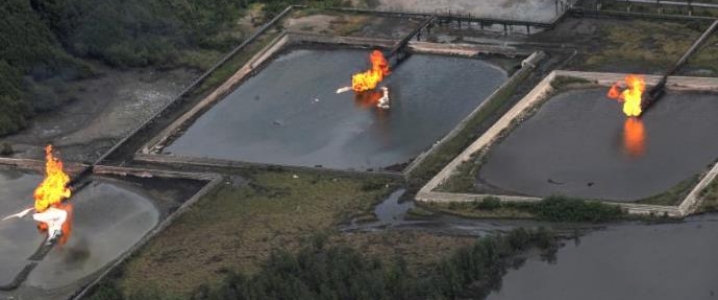Nigerian Trans Forcados Pipeline Could Reopen By End-Q2

The Trans Forcados Pipeline in Nigeria – which has suffered several militant attacks and has been shut for most of 2016 – could resume operations at some point at the end of the second quarter this year, a top manager with a company operating in Nigeria said on Monday.
Austin Avuru, chief executive at Seplat, told Reuters that Trans Forcados could re-open “towards the end of the second quarter”.
Seplat, which holds working interests in several fields in the Niger Delta and is exporting crude oil via Trans Forcados and the Warri refinery, has seen its production drop due to the militant attacks that have crippled Nigeria’s oil production last year.
Before the Forcados shut-in, Seplat’s working interest production was averaging over 52,000 boepd.
At the results release at end of October, Seplat said that the terminal operator was working to return Trans Forcados to steady state, which would enable Seplat “to establish a regular pattern of production into the Trans Forcados Pipeline and loading from the terminal”.
This small lithium company is on the verge of becoming the next big thing in the resource space. With incredible assets and a dream team including mining legend Frank Giustra – this company should be on all investors radar.
However, in early November Trans Forcados was bombed again in a renewed spate of attacks just as Nigeria was slowly starting to recover part of the production it had lost to attacks.
By November 2016, however, Nigeria had managed to increase its oil production to nearly 1.8 million barrels per day, according to OPEC direct communication figures. The November figure meant that Nigeria was regaining its status as Africa’s top oil producer–a status that had been assumed by Angola for the seven months leading up to September.
Still, even if it is exempt from OPEC production cuts, Nigeria needs to find a way to prevent militant attacks and restart the oil infrastructure and facilities damaged by insurgency, in order to ramp up production to the 2.2-million-bpd level before the attacks started.
Related News
Related News

- Keystone Oil Pipeline Resumes Operations After Temporary Shutdown
- Biden Administration Buys Oil for Emergency Reserve Above Target Price
- Freeport LNG Plant Runs Near Zero Consumption for Fifth Day
- Enbridge to Invest $500 Million in Pipeline Assets, Including Expansion of 850-Mile Gray Oak Pipeline
- Mexico Seizes Air Liquide's Hydrogen Plant at Pemex Refinery
- Evacuation Technologies to Reduce Methane Releases During Pigging
- Editor’s Notebook: Nord Stream’s $20 Billion Question
- Enbridge Receives Approval to Begin Service on Louisiana Venice Gas Pipeline Project
- Mexico Seizes Air Liquide's Hydrogen Plant at Pemex Refinery
- Russian LNG Unfazed By U.S. Sanctions




Comments